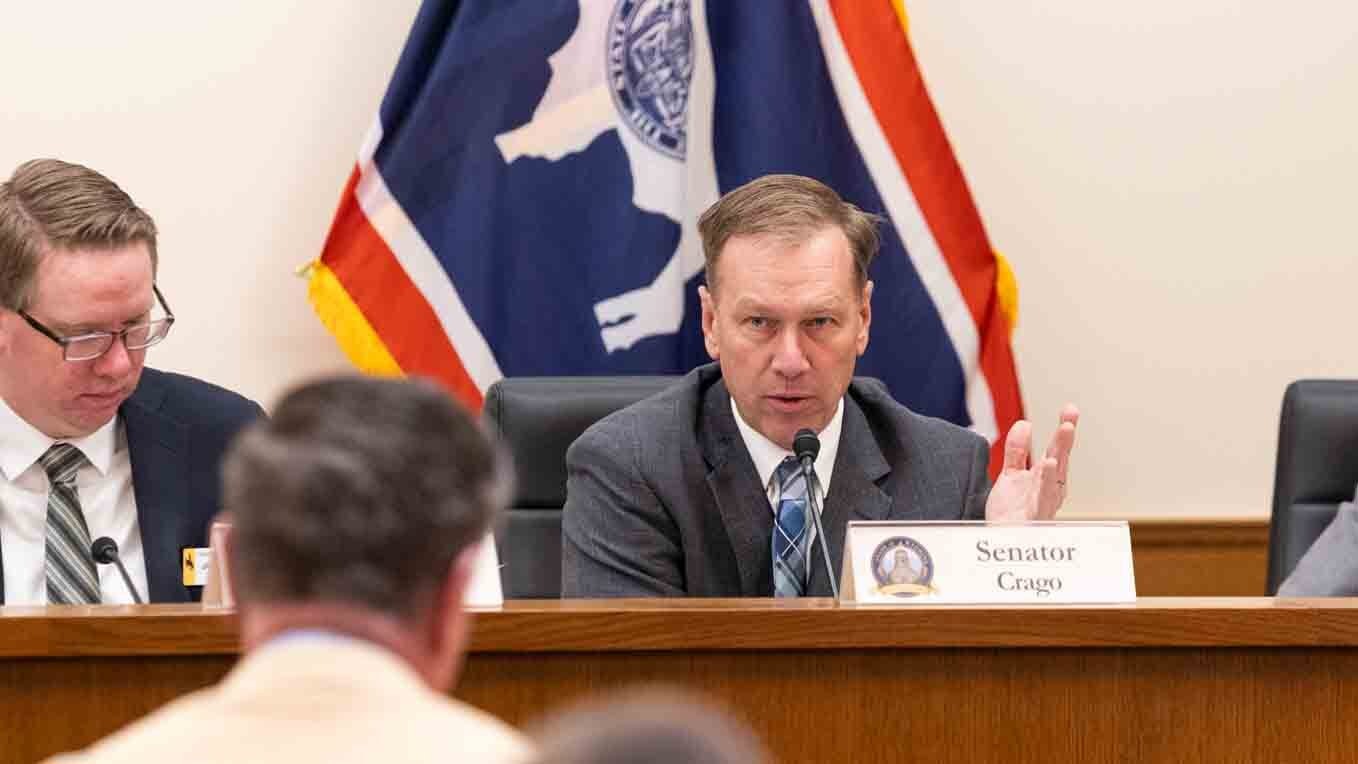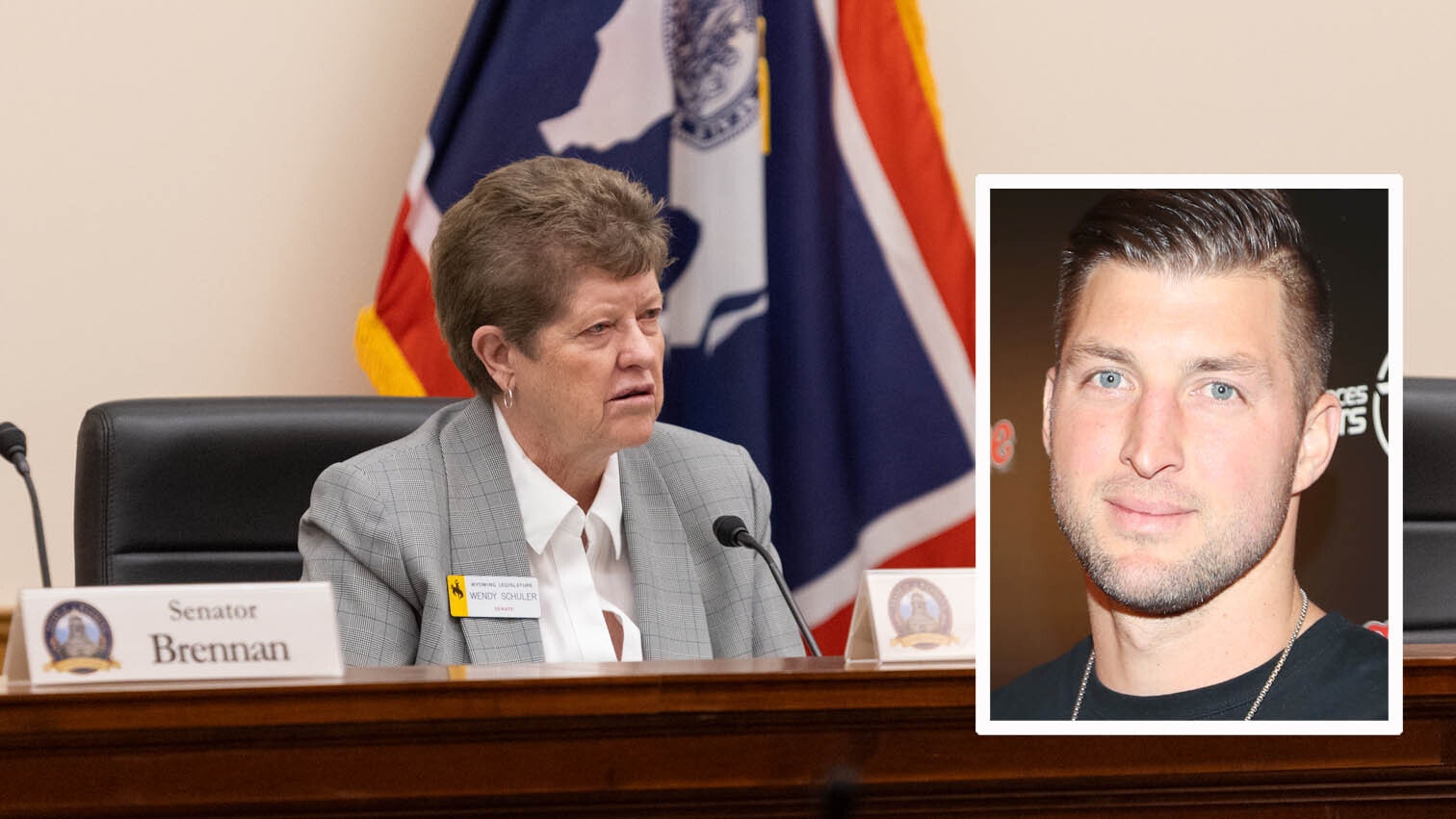When Kip Crofts first read about a reinvigorated push for passage of a Wyoming bill that would require Congress to authorize the deployment of their National Guardsmen, one of his first reactions was disgust.
Congress already has put the federal government into a shutdown because of inaction, Crofts said. Giving them the responsibility of deciding whether to deploy Wyoming’s National Guard is a poor decision, he added.
“Whether it's a forest fire or a flood or whatever it is, or peaceful riots … that’s something needs to be taken care of right away,” Crofts told Cowboy State Daily on Tuesday. “And for those people to sit back there and debate and argue and fight and make political statements to the press and never get anything decided or done. It's just, to me, a crazy idea.”
Crofts, a former U.S. Attorney for Wyoming appointed by former President Barack Obama, was referring to Sen. Chris Rothfuss’ recent touting of the “Defend the Guard Act,” legislation that has been introduced repeatedly in recent years but never reached a floor vote.
'Partisan Morons'
Crofts was more pointed in a guest column he wrote for Cowboy State Daily on Tuesday where he said the idea of not allowing the president to deploy the National Guard was "ironic and perhaps moronic."
"I say ironic and moronic because at the present time we are in the middle of a government shutdown' caused by the failure, once again, of Congress to do it’s primary job of appropriating funds necessary for the running of our government," he wrote.
"Congress has proved in recent years that it is utterly incapable of functioning at any task other than partisan bickering," he continued.
Krofts said a group of third graders would do better in Congress than the "partisan morons we have now in Washington."
Rothfuss could not immediately be reached for comment Tuesday, but previously told Cowboy State Daily the proposal is to ensure separation of powers between the legislative and executive branches.

‘Politics Is There’
Crofts said that while the ability to declare war should lie with Congress, the president and U.S. Secretary of Defense should have discretion on what troops to send, and where.
But he added that “politics is there” when it comes to people enlisting in the National Guard, and how they’re deployed. Many people decided to enroll in the National Guard to avoid combat in the Vietnam War, Crofts said. Some units, however, were ultimately deployed by former President Lyndon Johnson to Vietnam, while many were used to handle unrest and protests against the war in the United States.
The National Guard is a tricky entity because it is a mix of state and federal resources, Crofts said. He agreed with local Guard leadership’s testimony in recent sessions that passing such a law could endanger some of their funding and resources, including access to C-130 fighter planes.
“They’re pretty expensive pieces of equipment that I think the Wyoming legislature would have a hard time funding all by themselves,” Crofts said.
A spokesman for the Wyoming National Guard could not be reached for comment Tuesday.
State Legislatures Versus Federal Power
The question of whether state legislatures should draft and pass such laws is a classic example of a “rebellious legislature” fighting against what it views as overreach or too much power by the federal government, Crofts said.
It’s not just with the National Guard, he added – the state’s lawmakers have such convictions when it comes to gun laws and property rights, too.
“The Wyoming legislature tends to be a little bit rebellious and not wanting to knuckle under to the Feds on whatever issue it might be,” Crofts said.
Rep. Tom Kelly, R-Sheridan, cosponsored the bipartisan bill alongside Rothfuss and others.
In a Tuesday text message to Cowboy State Daily, Kelly indicated some common ground with Crofts. His understanding of the bill is that it’s to prevent foreign deployments without congressional authorization - but would still allow for domestic missions without a move from Congress.
An exemption in the second half of the bill appears to support that: It says nothing in the bill would prohibit the governor from letting the Wyoming National Guard provide defense support for civil authority missions within the U.S. and its territories.
“I share Crofts’ sentiment that it's a bad idea to restrict the president's authority to command state militia within US borders,” Kelly wrote. “I want American forces protecting America, not Ukraine, for example.”
It’s Still Their Job, Says Singh
Rep. Daniel Singh, R-Cheyenne, told Cowboy State Daily on Tuesday that he will continue to sponsor the “Defend the Guard Act” because elected officials at the state and federal level should have a say in whether Guardsmen are deployed to war.
While it is true that Congress might not be as expedient as some would like, that doesn’t mean their responsibility to take that vote goes away, Singh said.
“The only reason I put forth the ‘Defend The Guard Act,’ is because we have seen the institution of warfare without a declaration of war, and I don’t think that’s right,” Singh said.
The makeup of the National Guard does make it a sticky issue, Crofts said. But if the federal government funds most of their operations, then the federal government should decide how it’s used, he said.
Cowboy State Daily previously reported that in 2024, the guard’s budget was $94 million in federal and $7.23 million state money. The federal government has shifted the guard’s priorities as well, to assume more focus on immigration enforcement.
“The National Guard, it’s an odd animal,” Crofts said. “It's a state militia in a way, but it's also obviously a very federalized thing.”
Steve Bohnel can be reached at steve@cowboystatedaily.com.





